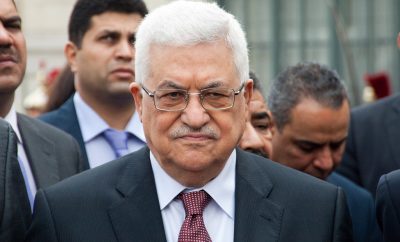 Image Courtesy of [gnuckx via Flickr]
Image Courtesy of [gnuckx via Flickr]
World
Israel and Turkey Re-establish Diplomatic Ties
In 2010, 80 miles off the Israeli coast, in the Mediterranean Sea, Israeli soldiers raided a Turkish ship that was on a humanitarian mission to the Gaza Strip. The soldiers killed ten workers onboard. The bloody episode aboard the Mavi Marmara–which was attempting to breach Israel’s naval blockade of the Gaza Strip–resulted in severed ties between Israel and Turkey. On Monday, in a deal that has garnered praised from Gaza to America, Israel and Turkey announced intentions to thaw their diplomatic relationship, ushering in a new era of cooperation. The deal will be officially signed on Tuesday.
Israeli Prime Minister Benjamin Netanyahu announced the deal in Rome, where he was meeting with U.S. Secretary of State John Kerry. In a speech broadcast from Rome to Jerusalem, Netanyahu touched on the primary tenets of the partnership moving forward: Turkey will be allowed to move aid to the Gaza Strip–a tiny parcel of Palestinian territory that is controlled by Hamas, a Palestinian group which the U.S. deems a terrorist organization–via the Israeli port of Ashdod. That means the naval blockade of Gaza–the point of contention in the 2010 IDF raid–will remain in place. Netanyahu called the blockade “a supreme security interest,” and said he was “not prepared to compromise on it.”
Turkey can deliver humanitarian aid to Gaza, but shipments must stop through Ashdod for Israel’s approval first. Turkish Prime Minister Binali Yildirim, in his announcement of the deal in Ankara on Monday, said Turkey intends to send an aid ship of 10,000 tons of materials on Friday. He also said Turkey aims to build a 200-bed hospital, new residential buildings, a power station, and desalination plant in Gaza. The new deal also stipulates that Israel will pay $20 million to the families of the Mavi Marmara victims, and for their part, Turkey will not pursue legal action against the IDF soldiers who participated in the killings.
Netanyahu said an Israeli ambassador will be sent to Turkey, and a Turkish counterpart to Israel, “as soon as possible.” Because of normalized relations, Turkey will likely become a customer of Israeli natural gas, and Netanyahu said the deal would have “immense implications for the Israeli economy.” The partnership is especially important considering the calamity in the Middle East, particularly in Syria, which shares a border with both countries. Some analysts peg the deal as a tool against Iran, a rival for both countries in regional prominence.
In Rome, Kerry congratulated Netanyahu on the deal. He said: “I think it’s a positive step, one of, I hope, the beginning of others.”








Comments